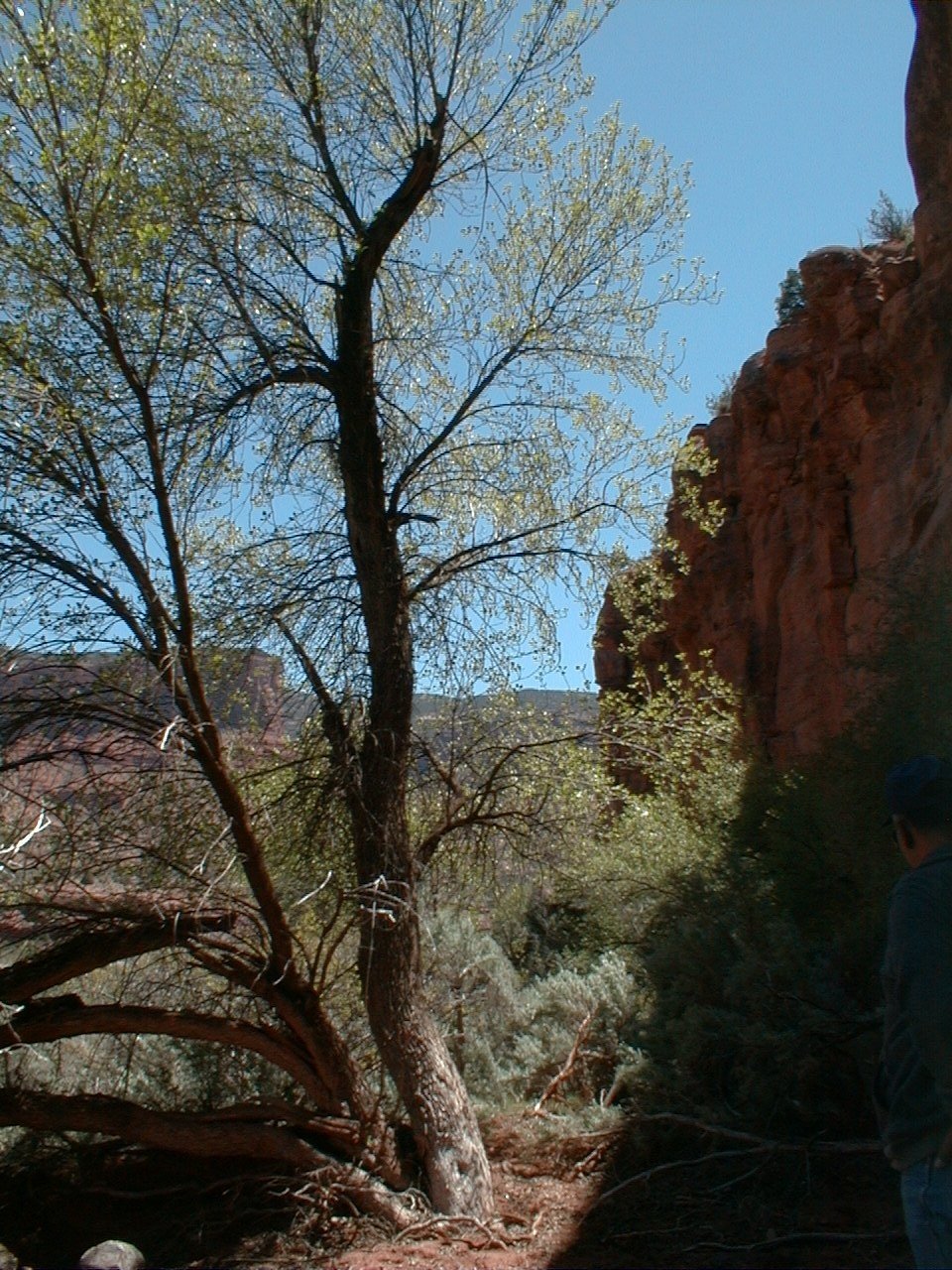single leaf ash (Fraxinus anomala)
First place champion Scotch pine in Fort Collins at City Park.
Species info:
Leaves: Mostly simple (unlike most ashes); bright green, smooth, glossy, and slightly toothed along the margins
Leaflets: Occasionally a few compound leaves, but typically single leaves per node
Leaf Surface: Smooth and shiny green; turns brilliant yellow in fall
Bark: Dark brown to gray; slightly furrowed with age
Flowers: Inconspicuous; tree is dioecious (separate male and female trees)
Fruit: Winged samaras up to ¾ inch long; hang in clusters; mature mid-summer and may persist through winter
Botanical: Fraxinus anomala
Family: Oleaceae
Mature Height: Typically 10–20 feet (can vary depending on site moisture)
Canopy Spread: 10–15 feet; rounded when young, becoming upright and elliptical at maturity
Foliage Type: Deciduous
Tree Shape: Irregular, rounded to upright-elliptical; often multi-stemmed
Flowers: Inconspicuous; appear in spring before or with leaves
Fruit: None
Fall Color: Brilliant yellow; highly ornamental
Water Use: Low; tolerant of drought, heat, and high pH soils
Hardiness: Zones 5–7
Soil Preference: Adapted to dry, rocky, or well-drained soils; thrives in canyon bottoms or runoff areas where moisture accumulates
Wildlife Value: Seeds provide food for birds and small mammals; canopy offers limited cover
Pests/Pathogens: No major pest issues observed in native habitat; however, all ash species are susceptible to Emerald Ash Borer (EAB) in infested regions
Notable Traits: Native to western Colorado and southern Utah; highly tolerant of arid conditions and alkaline soils;
Planting recommendation: Ash trees are no longer recommended for planting in Colorado due to the presence of Emerald Ash Borer (EAB); refer to the Front Range Tree Recommendation List for alternatives
Information Sources:
Trees of Utah and the Intermountain West, Utah State University Press, 1998.
Michael Kuhns. Fire Effects Information System. USDA Forest Service.


